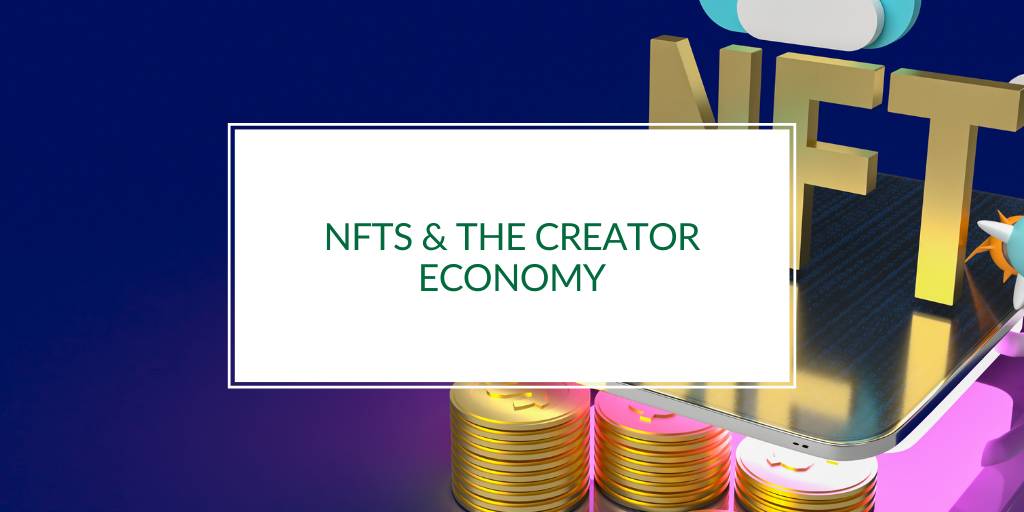CDS Associates Explore: NFTs and the Creator Economy
April 7th, 2022Topics: Blockchain / Distributed Trust Entrepreneurial Tech

Earlier this spring, MBA Associates of the Center for Digital Strategies gathered to explore NFTs and the creator economy. Below is a recap of that discussion, including reading list, key questions, and themes explored during the session.
Initial discussion questions:
- What are NFTs?
- How do you see NFTs & the concept of digital ownership changing creative businesses in the future?
- What is a creative product you enjoy consuming (like music/literature/etc.)? How has it changed over the last 15 years due to digitization?
Pre-readings:
- NFTs, explained
- View: How creators and NFTs are fuelling the Digital Renaissance
- The Creator Economy, NFTs And Marketing
- Decentralization revolutionizes the creator’s economy, but what will it bring?
- After NFTs Transform the Creator Economy, Creators Will Issue Their Own Currencies — Here’s Why.
- Minting Your First NFT: A Beginner’s Guide to Creating an NFT
Key takeaways from the discussion:
- There is significant skepticism regarding NFTs for the following reasons:
- Much of the skepticism stems from the fact that NFTs are not a fully developed technology (yet)
- There are few rules and boundaries around NFTs, making it difficult to comprehend and agree on what counts as art, what it means to own digital art, and how NFTs are valued
- If issues around ownership and valuations are resolved, NFTs will likely prove beneficial in the long run, especially for artists, as the metaverse becomes a reality
- More education is needed to help artists and creators understand how to make use of NFTs;
- NFTs have the potential to bridge gaps between generations of artists and art consumers/collectors/buyers
- There are major unanswered questions surrounding NFT creation, IP, valuation, and future monetization of digital ownership
Additional discussion points:
- NFTs vs. conventional art market – NFTs appear poised to overtake the conventional art market in terms of $$$ so artists and businesses should not ignore the power of NFTs
- Market of digital art is $41B vs. traditional art market of $50B
- Streaming revolutionized music, often at the expense of artists; NFTs could play a role in returning some power and control to artists
- NFTs will likely alter royalties in gaming, sports and music, leaving key questions unanswered around IP and ownership of song catalogues, live performances, etc.
- NFTs could be beneficial for the art community in long run
- Future will entail looking at NFT ownership; right now ownership doesn’t really mean anything because technically anyone can copy/paste an image from Google into a presentation
- People in the art community don’t really understand NFTs just like the rest of us; over time more third parties will be created to help the art community –> this kind of goes against the point of NFTs
- Decentralization is key component of NFTs, but what does that really mean? What are the implications for the creator economy?
- There’s not a lot of education around how artists can use NFTs as a tool moving forward
- Helps for artists to be paid but how do artists get started to tap into
- How to assign a value to something that isn’t concrete?
- Free market – The value is whatever someone is willing to pay for it
- How to distinguish value between physical art (e.g. Monet painting) vs. an image of a Monet that is an NFT?
- Discussion around converting physical art like Mona Lisa into digital – who would own this?
- Sustainable value: NFTs as ownership in metaverse
- NFTs will be interesting in the context of the metaverse; it’s like furnishing your house with art but furnishing your virtual house with NFT art
- Appears NFTs are trying to bridge gaps between generations
- Are NFTs really just about bragging rights or do owners get dividends or payments from owning an original image?











